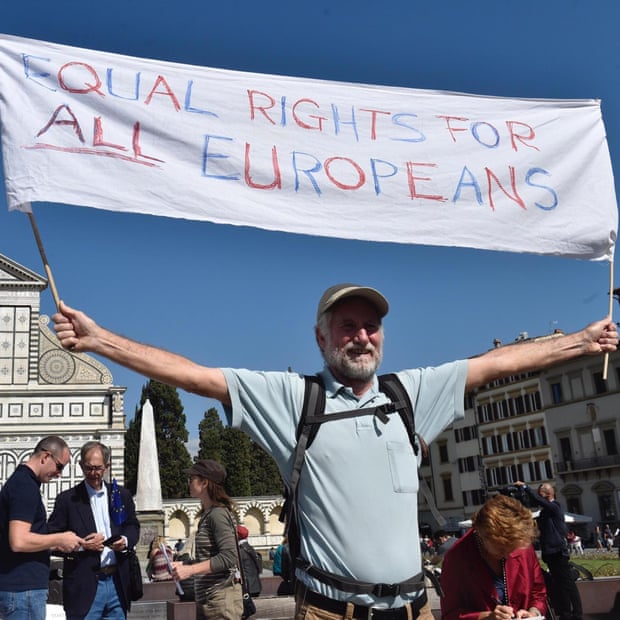Keir Starmer has torn into the government’s “woefully inadequate” analysis of how the EU charter of fundamental rights will be covered by British law after Brexit, warning that essential protections will be lost.
The shadow Brexit secretary said Labour would force a vote on the issue this month at the next stage of the EU withdrawal bill, as the government was still refusing to transpose the charter into UK law.
The government managed to head off a rebellion on the issue by Conservative MPs, led by the former attorney general Dominic Grieve, by promising a “right-by-right analysis” of how UK law already covers the same ground as the charter on areas such as children, the environment, data and consumer rights.
However, Labour and legal experts said the document showed only how UK law fell short in providing the same protections as the EU charter of fundamental rights.
“The document they released fails to provide any assurance that essential rights will be protected once we leave the EU,” Starmer said. “On the contrary, it takes rights from the charter and scatters them to their original sources: the polar opposite of effective human rights protection.
“We need a cast-iron guarantee in law that the rights contained in the charter will be given the same legal protection as those currently contained in the Human Rights Act.
“This is not a party political issue. It is about the type of nation we want to be. Britain should be a proud advocate of human rights. That’s why I would urge all MPs to back Labour’s amendment to the withdrawal bill when it is debated in January.”
It is not clear yet whether the Conservative rebels would be prepared to back such an amendment or table one of their own, after successfully defeating the government on the issue of a guaranteed parliamentary vote on the final deal before Brexit day.
However, some lawyers are concerned the government’s refusal to incorporate the charter into UK law will weaken human rights protections. Schona Jolly QC, a human rights and equalities lawyer, said the government’s analysis “fails to tackle the legal reality that abandoning the charter indeed does remove rights that UK citizens currently enjoy and adds to the complexity, confusion and uncertainty surrounding the basis to protect and enforce substantive rights post-Brexit.
“Take, for example, the freestanding right to equality contained within article 21 of the charter,” she said. “There is no equivalent in domestic law. The Equality Act does not have constitutional status. A constitutional right would underpin all statutory equality rights to provide a strongly focused standard against which state action can be judged, as well as providing a solid interpretative basis by which our domestic common law can be developed.
“The government’s analysis doesn’t begin to deal with this acute loss of one of the most foundational rights in our democracy after we leave the EU. So too in respect of other rights.
“If the government is truly committed to non-regression of rights, it must commit itself in statute. Its weak legal analysis, conducted as an act of self-justification after having already taken the decision to drop the charter, falls demonstrably and critically short in plugging the post-Brexit rights gap.”
Q&ABrexit phrasebook: what are citizens' rights?
Show

Citizens’ rights are the rights and protections offered to all EU citizens, including free movement and residence, equal treatment and a wide range of other rights under EU law regarding work, education, social security and health.
They are held by some 3.5 million citizens from other member states in the UK and about 1.2 million British nationals on the continent, and are a key part of the negotiations that are taking Britain out of Europe.
The vote forced by Labour will happen during the report stage of the EU withdrawal bill in the House of Commons, which is due to take place in the third week of January.
After making its way through the Commons, the bill is likely to run into further trouble in the House of Lords, where the government has no majority and peers are likely to try to make further amendments.
A Department for Exiting the EU spokesperson said: “The UK has a longstanding tradition of ensuring our rights are protected. As we leave the EU, we are taking action to ensure that that continues.
“The EU charter of fundamental rights was never the source of rights in the UK – it was intended to catalogue the rights that already existed in EU law. Under the withdrawal bill this law is being converted into UK law on the point we exit the EU.”













